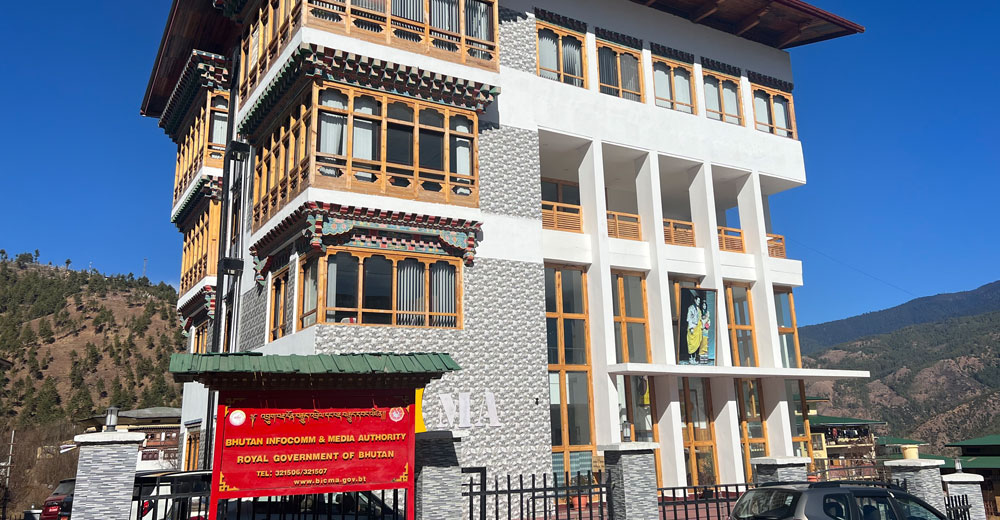Rinzin Wangchuk
After functioning as autonomous bodies for more than three years, both the Media Council and National Film Commission are now back with the Bhutan Information, Communications and Media Authority (BICMA).
The merger order was issued on January 6 following the Royal Civil Service Commission’s (RCSC) reorganisation order. The folding back of authorities, commissions, and councils under their respective ministries and to discontinue the concept of autonomous entities is one of the reform initiatives taken to reorganise civil service agencies following the enactment of the Civil Service Reform Act (CSRA) of Bhutan 2022 by the Parliament last November.
The MoICE officially took over the merged BICMA yesterday since the administration and human resources falls under the ministry as per the reform Act.
BICMA’s director Jigme Wangdi said that BICMA has proposed to create the media and content division, which will be an extension of the existing media licensing division, headed by a chief.
Both the Media Council and Film Commission were delinked from BICMA and established as independent bodies supported by secretariats in September 2019 as per the provisions of the Information, Communications and Media Act (ICMA) 2018.
BICMA was established in 2006 as an authority responsible for the regulation of information, communications and media sector. Its main mandates are licensing and enforcement of cable TV, broadcast media, printing presses, publications, ICT facility and service, and managing access to the radio-frequency spectrum and monitoring their usage.
The Media Council has the mandate to pomote and protect freedom and independence of the media, serve as a standard setting body to promote and enhance ethical and professional standards amongst journalists and media enterprises for media practitioners.
The council also accredit and certify local journalists, issue ad hoc accreditation to foreign journalists, regulate or curtail harmful, offensive, illegal or antithetical content on the internet and other ICT and media services. It also settled disputes in relation to offences of media content not amounting to criminal offences.
The film commission is tasked with building a strong and vibrant creative media sector capable of contributing to Bhutan’s pursuit of Gross National Happiness. The commission is also responsible to provide professional supports to film production firms, film grants through a dedicated film development fund.
The other mandates are granting filming permits to both local and foreign productions, certify and rate both local and foreign films, facilitate Film Association of Bhutan in organising film awards and festivals to recognise films of excellence and to promote film culture, participate in international festivals to promote Bhutanese films, scripts for co-productions and locations.
No Board
Director Jigme Wangdi said that the mandates of the media council and film commission will not change although they will have to function under the BICMA secretariat. “However, independent boards constituted to govern BICMA, media council and film commission will be dissolved automatically,” the director said. “The ownership lies with the ministry not with the board.”
The reform Act repeals Boards in all the existing laws under civil service and concerned ministries are made to carry out such functions of the Board. However, there is a provision in the reform Act for concerned ministries to constitute commissions, councils, committees, or authorities to carry out delegated functions of the ministries.
While discussing the civil service reform Bill in Parliament, Prime Minister Dr Lotay Tshering informed the house that the creation of the Board under the existing law will be repealed by the CSR Bill as the functions of the Board are duplicative with that of the ministry.
With the merger, the BICMA director will now report to the secretary of MoICE on administrative issues.
Meanwhile, stakeholders from media houses expressed concerns over the lack of independent bodies to tackle media related disputes and complaints against government agencies. “There will be a conflict of interest,” one editor questioned during the recent informal meeting with the media houses at the Department of Information and Media (DoIM).
The DoIM is also merged with the Department of Intellectual Property and renamed the Department of Media, Creative Industry and Intellectual Property under MoICE.


